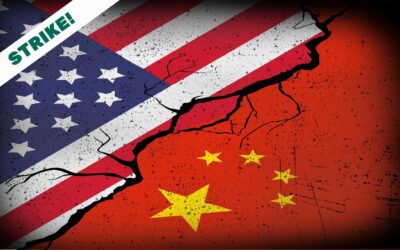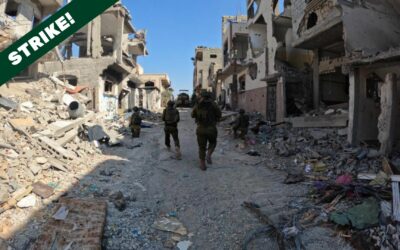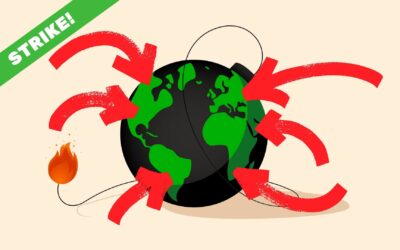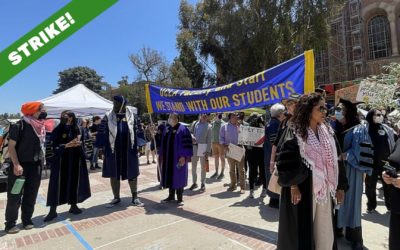
US vs. China
In barely a decade the US and China have moved from tacit alignment to existential rivalry. Impacted by and impacting the other dynamics of the convergence of crises that compose the “polycrisis,” the US and China are openly preparing for war – a war that could all too easily escalate into World War III. This is the sixth of a series of Strike! commentaries on “The Polycrisis and the Global Green New Deal.”
The Gaza War: The Glory of the Polycrisis
This commentary, the fifth in a series on “The Polycrisis and the Global Green New Deal,” takes the war that began in Gaza and is spreading throughout the Middle East as a laboratory for dissecting the dynamics of the concatenation of crises now being referred to as the “polycrisis.”
From Unipolar Globalization to Polycrisis
How, in a few short years, did we get from a world order dominated by the United States and characterized by economic globalization to one of great power rivalry and global economic fragmentation? This commentary, the fourth in a series on “The Polycrisis and the Global Green New Deal,” sketches that transformation.
The New Hot Wars
“Polycrisis” is a word being used to describe the current confluence of military, geopolitical, economic, political, climate, and other crises. This series of commentaries on “The Polycrisis and the Global Green New Deal,” probes the dynamics of the polycrisis and what alternatives there might be to its race to destruction. This commentary, the third in the series, examines the stunning expansion of armed conflict in the polycrisis era.
Dynamics of the Polycrisis
“Polycrisis” is a word that has recently come into use to characterize the way crises in many different spheres – ranging from geopolitics and economics to climate and pandemic – are aggravating each other and even converging.
“The Whole World Is in a Terrible State o’ Chassis”
This is the first of a series of Strike! Commentaries on the “Polycrisis and the Global Green New Deal.” The term “polycrisis” is increasingly being used to describe an era in which multiple crises collide – in particular, our present era. The first set of Commentaries in this series examine geopolitics and war in the era of polycrisis.
The Strategy of the Green New Deal from Below
The Green New Deal from Below pursues strategic objectives that implement Green New Deal programs, expand the Green New Deal’s support, and shift the balance between pro- and anti-Green New Deal forces. Not every action is likely to accomplish all of these objectives, but most actions aim to accomplish more than one of them at the same time.
Student Gaza Protesters Are Enforcing the Law
More than 2000 protestors have been arrested in pro-Palestinian demonstrations since mid-April. They have been charged with “criminal trespass” and other crimes. University officials, police, and politicians may say that students protesting Israeli genocide in Gaza and US complicity with it are criminals. But far from breaking the law, their actions are actually enforcing it. Here’s why.
Strategic Perspectives of the Green New Deal from Below
The Green New Deal from Below expresses the values and programs of the Green New Deal at local, state, and regional levels. But it is also a strategy for how to realize those values and implement those programs. This Strike! Commentary will explore how, in a complex and conflicted political arena, the Green New Deal movement has constructed such a strategy. The next commentary will explore how it has implemented that strategy in practice.








